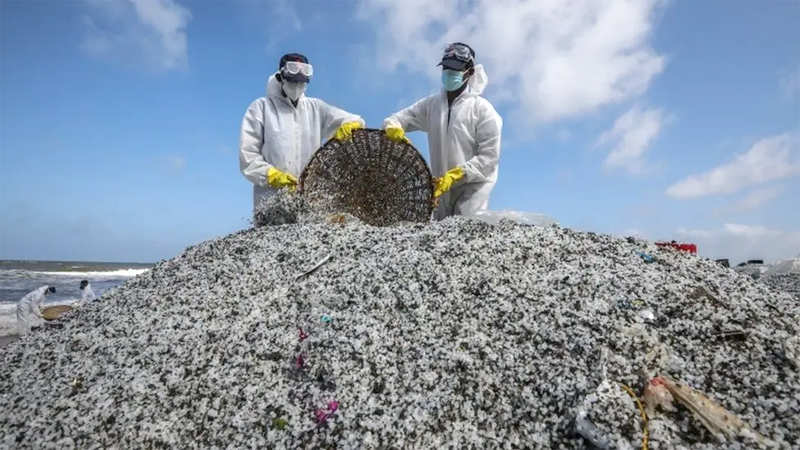As the United Nations and member states prepare for the final round of negotiations on the Global Plastics Treaty in November, UN environment head expects the treaty to seek to “prevent” nurdle spills from maritime disasters such as the Xpress Pearl.
The first global treaty of its kind to address worldwide plastic pollution, the treaty’s final negotiations are due in Busan, South Korea.
Speaking of the role the treaty could play in a situation similar to the Xpress Pearl disaster, the Under-Secretary-General of the United Nations and Executive Director of United Nations Environment Program (UNEP) Inger Andersen said that the language of the treaty would seek to prevent nurdle spills.
“While the treaty itself cannot address an issue like this, the treaty itself can speak to the issue of what we call legacy plastic and accidental releases,” Andersen said.
Legacy plastics are plastics that are already in the environment, and cannot generally be reused or recycled, including nurdles – the tiny plastic pellets that are usually less than 5mm in diameter that are used to manufacture plastic goods.
“This is why the plastic treaty is so important, because reducing the production of raw polymer for single use and short-lived (goods) has to be part of the conversation,” Andersen said.
The Singapore flag bearing Xpress Pearl cargo vessel, carrying hazardous substances and plastic pellets caught fire off the western coast of Sri Lanka in May 2021, spilling close to an estimated 25 to 50 billion nurdles, and other carcinogenic chemicals into the ocean.
Nurdles, in individual form and as clumps formed during the chemical fire on board the ship, could be found on the shores of the island, to date.
“Twenty-five billion small plastic pellets is mind-boggling, and so compensation is obviously something that the Government needs to pursue at this point,” she said.
Considered one of the largest ship disasters involving nurdle spills, and hazardous and noxious materials in the world, in the aftermath of the disaster, carcasses of dead animals, some with burn marks, started washing ashore, and by June 2021, the tally came up to 417 turtles, eight whales and 48 dolphins.
Referring to the prolonged recovery process from the disaster, and the important role the seafood and tourism industry plays in Sri Lanka, Andersen stressed the importance of deciding where the responsibility lies.
“As the treaty is still in negotiation, it could also be around ensuring some degree of responsibility,” Anderson said adding that “the text doesn’t exist yet, so it’s a bit too soon for me to comment on that.”
On the nurdle spill off a cargo ship off the coast of Portugal in December 2023, she said, “I was just aghast, this happened again. Has the industry not learned anything from the Sri Lanka catastrophe?
The industry needs to be held to account, because this is unacceptable.”
As of now, the proposed Global Plastic Treaty seeks to address plastic pollution via a number of policy instruments, including production caps, and a tax in the form of a “global plastic fee.”




